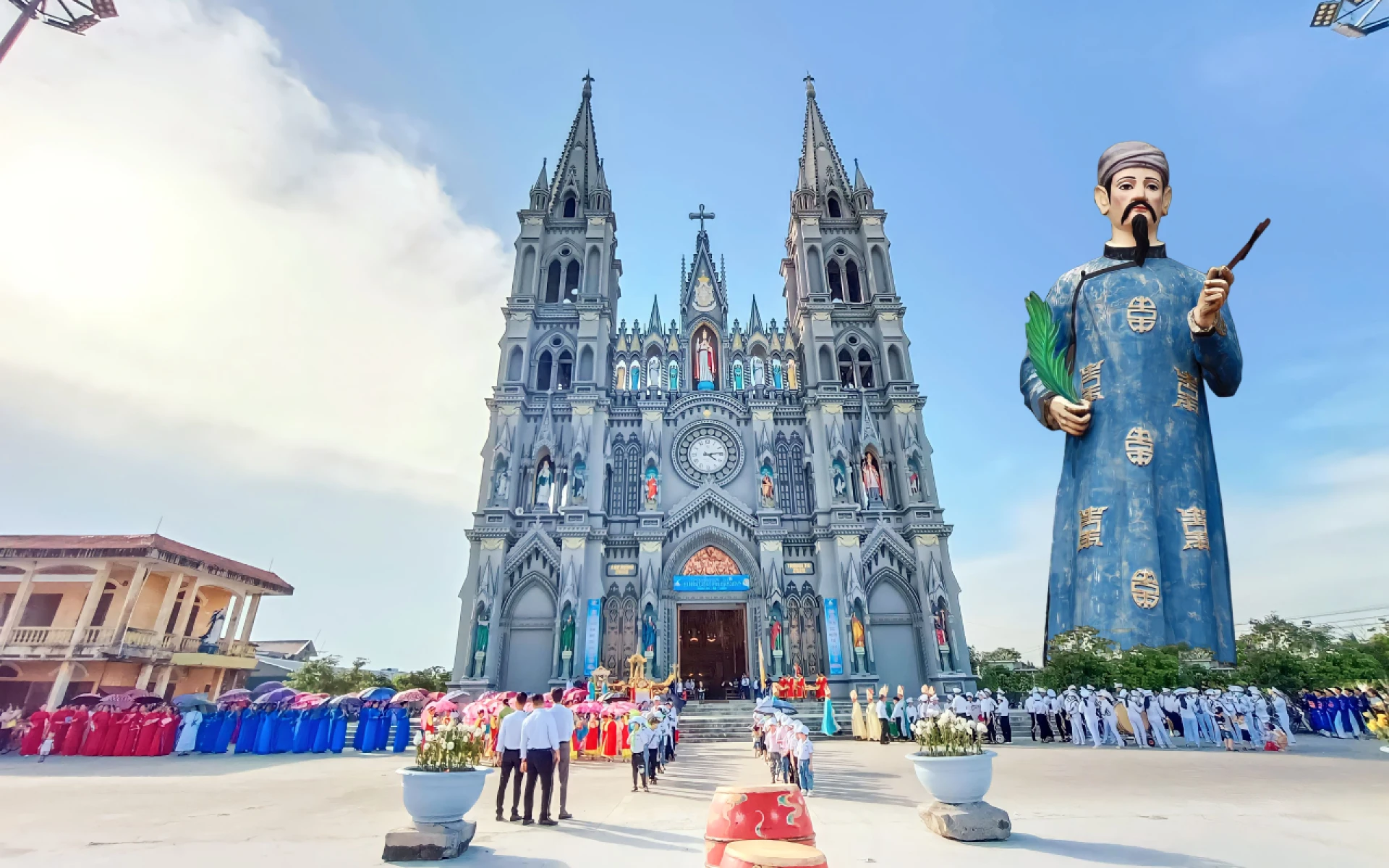Peter Dinh Van Thuan, born in 1802 in the Dong Phu parish, Trung Dong district, Ke Men, Thai Binh province, came from a poor but nurturing family. He made a living as a fisherman. In his role as a village leader, Thuan actively served the community, facing hardships to protect the Catholic faith.
In August 1861, King Tu Duc issued the Edict of Persecution, mandating that all Catholics, regardless of age, renounce their faith and step on the Cross. Those who refused would be labeled "followers of the Western religion," and their property confiscated.
Amidst this persecution, in the spring of 1862, Thuan was arrested, taken to the district magistrate's office, and imprisoned in Ngoc Chi dungeon. Despite enduring torture and being forced to renounce the Cross, he remained steadfast in his faith in Christ. In the summer of 1862, due to despair, Thuan momentarily renounced his faith by stepping on the image of Christ.
However, after being counseled by fellow prisoners, he realized his mistake and returned to the embrace of God's mercy and forgiveness. On June 6, 1862, for steadfastly defending the Catholic faith, Thuan, along with Saint Peter Dinh Van Dung, was confined in a cramped bamboo cage and burned alive under the reign of King Tu Duc. His remains were later solemnly buried at Dong Phu Church in his hometown.
For his unwavering commitment to the Catholic faith until death, fisherman Peter Dinh Van Thuan was beatified on April 29, 1951, and canonized on June 19, 1988.


